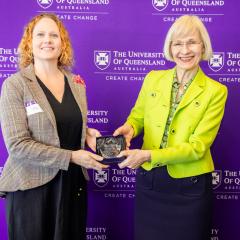A new study published by Dr Miguel Frohlich and colleagues from The University of Queensland, University of Tasmania, BMT and the Tasmanian Department of Natural Resources and Environment explores Australia's blue economy policy and legislative arrangements. The blue economy focuses on the sustainable development of marine resources, but governance of these resources is complex and fragmented. Multiple entities manage marine resources on a sectoral basis, which has created uncertainty about what, when, how, and by whom blue economy activities are possible.
The researchers propose a new approach to understand and manage the complexity of the blue economy governance system. They used a network approach to map and analyse the policy and legislative system associated with Australia's blue economy. By using a database of over 2000 international, federal, and state policy and legislative arrangements, the researchers identified potential gaps and overlaps that may hinder the deployment of blue economy activities.
Their approach used network graphs to easily visualize policy and legislative clusters around government entities, relationships between those entities and clusters, and potential gaps and overlaps in the existing policy and legislative landscape. The results showed that there is a lack of integration and a need for policy and legislation that fits the purpose of the blue economy, especially for the development of co-located blue economy activities.
Overall, this study highlights the need for innovative approaches to address the complexity of the blue economy governance system and improve policy and legislative arrangements to facilitate the sustainable development of marine resources.
Frohlich, M., Fidelman, P., Dutton, I., Haward, M., Head, B.W., Maynard, D., Rissik, D., Vince, J. 2023. A network approach to analyse Australia’s blue economy policy and legislative arrangements. Marine Policy, 151: 105588; doi: 10.1016/j.marpol.2023.105588



